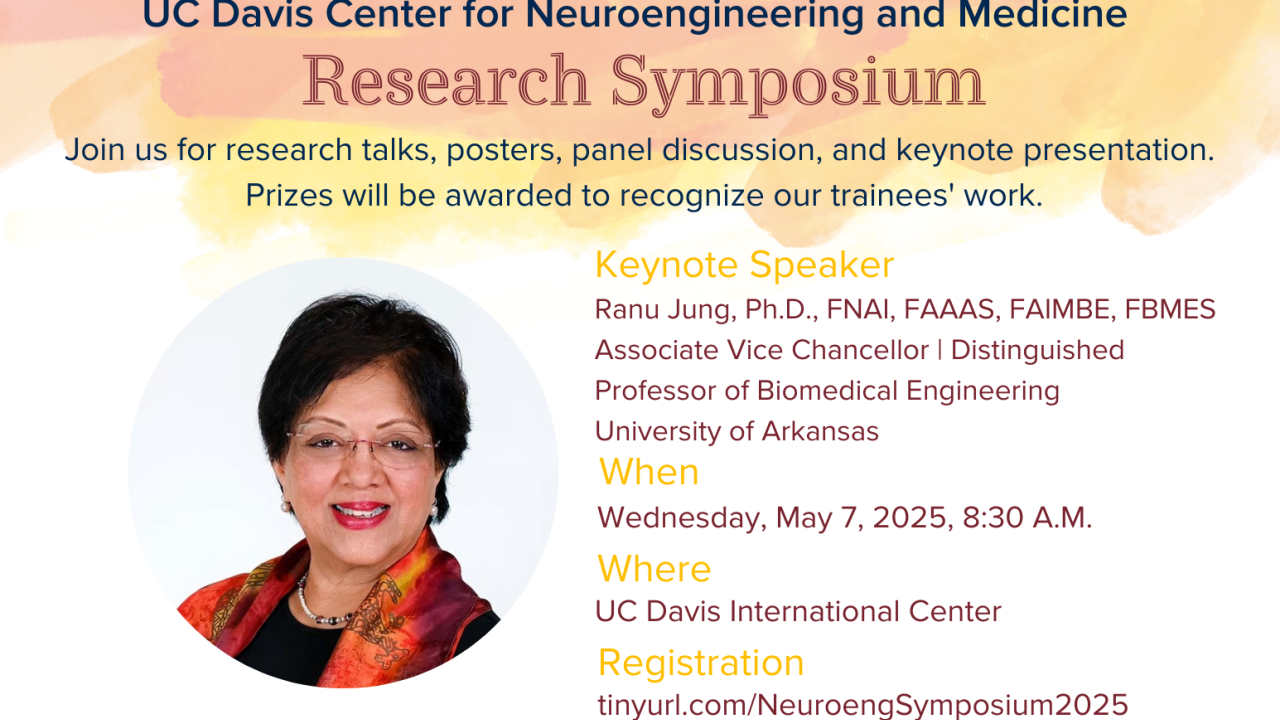
Event Date
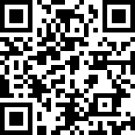
https://tinyurl.com/Neuroeng-Agenda
Post-event update: Select recordings are available at links provided in the agenda below.
Join us for our 4th Annual Research Symposium organized by the Center for Neuroengineering and Medicine on Wednesday, May 7, 8:30 AM -6:00 PM, at the International Center on the Davis campus.
The symposium will bring together neuroengineering faculty, physician-scientists, clinicians, students, and postdocs from engineering, medicine, neuroscience and other fields to share research results and network with like-minded researchers. Presenters include faculty, graduate students, and other trainees at UC Davis. Trainees are invited to submit abstracts (see Call for Abstracts) and those selected by the faculty committee will compete for awards. New this year, the program includes a panel discussion on translational neuroengineering.
We are delighted to have Dr. Ranu Jung as keynote speaker. An accomplished neuroengineer and distinguished professor of biomedical engineering, Dr. Jung is the Founding Executive Director and Endowed Chair of The Institute for Integrative and Innovative Research (I3R), and Associate Vice Chancellor at University of Arkansas in Fayetteville.
Registration is required: https://tinyurl.com/NeuroengSymposium2025

Keynote Speaker: Distinguished Professor Ranu Jung, PhD
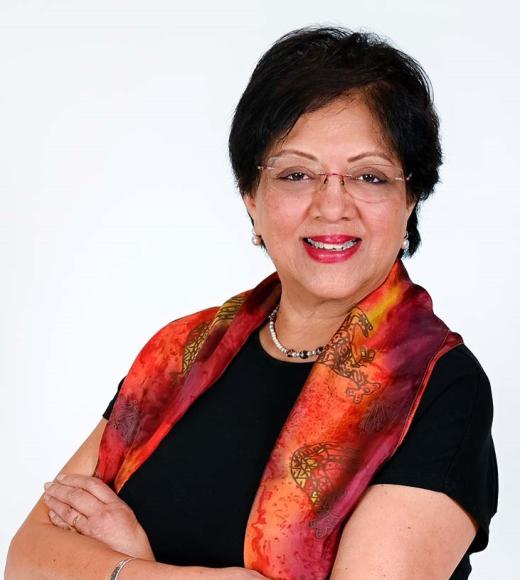
Ranu Jung, PhD is Associate Vice Chancellor, Founding Executive Director and Endowed Chair of the Institute for Integrative and Innovative Research (I³R) at University of Arkansas and Distinguished Professor of Biomedical Engineering.
A renowned researcher and innovator, Jung was selected in 2021 to lead the founding of the Institute for Integrative and Innovative Research (I³R) - a new model of research institute distinguished by a dual mandate to advance research excellence and impact economic development. Under Jung’s leadership, I³R is boldly pioneering solutions to wicked problems through convergence research across academic, industry, government, and non-profit sectors ultimately making a positive societal impact by creating and deploying innovations at scale.
Convergence also plays a prominent role in Jung’s research, which is at the leading edge between engineering and neuroscience, developing devices that lead to scientific advances with clear pathways to clinical application. Of special interest to her are biohybrid systems that merge biologically inspired technologies with humans for recovery and restoration of lost function.
A champion for innovation and entrepreneurship her team developed the first wireless, implantable, intrafascicular neural-interface system for restoring sensations to individuals with upper limb amputation and received FDA approval to conduct a first-in-human trial.
Holder of 17 U.S. patents, founder of one R&D Company, Jung is a Fellow of the American Association for the Advancement of Science, the National Academy of Inventors, the American Institute for Medical and Biological Engineering, the Biomedical Engineering Society and member of the International Women’s Forum.
A foremost thought leader and expert in her field, Jung has chaired or served on advisory and review committees for the National Advisory Council for Biomedical Imaging and Bioengineering for the US National Institutes of Health, the US National Science Foundation, European Research Commission, and international and national research foundations.
Jung received her Doctoral and Master’s degrees in Biomedical Engineering from Case Western Reserve University, USA and her Bachelors with Distinction, in Electronics & Communication Engineering from National Institute of Technology, Warangal, India.
Ranu Jung is driven by purpose to make a positive societal impact.
Title: “Wicked Problems” – Complexity, Novelty, Convergence
Neurotechnology offers groundbreaking potential to improve our understanding of the nervous system and develop cutting-edge solutions for physical and mental health challenges. However, bridging the gap from research to practical applications remains a complex task, necessitating interdisciplinary collaboration and innovative approaches. This discussion examines these challenges through the lens of "wicked problems," emphasizing the importance of convergence across diverse sectors such as industry, community, policy, and capital investment. Highlighting the Neural-Enabled Prosthetic Hand System—tested in a pioneering FDA-approved first-in-human trial—as a case study, this talk showcases the critical role of collaboration among government, academia, industry, and volunteers in advancing human-machine interfaces. By fostering strategic partnerships and integrating cross-sector innovation, the goal is to translate neurotechnological advancements into scalable, transformative solutions with far-reaching societal impact, ultimately reshaping the accessibility and future of healthcare.
Agenda
| 8:30am | REGISTRATION AND NETWORKING |
| 9:00am | WELCOME REMARKS: Kim Elaine Barrett, PhD, Vice Dean for Research and Distinguished Professor of Physiology and Membrane Biology, UC Davis School of Medicine 
|
| 9:10am | CENTER FOR NEUROENGINEERING AND MEDICINE - AN OVERVIEW |
| 9:25am | ORAL PRESENTATIONS by Selected Trainees
|
| 10:10am | BREAK & GROUP PICTURE |
| 10:20am | KEYNOTE PRESENTATION: Ranu Jung, PhD, FNAI, FAAAS, FAIMBE, FBMES, Founding Executive Director and Endowed Chair for the University of Arkansas' Institute for Integrative and Innovative Research, Associate Vice Chancellor, and Distinguished Professor of Biomedical Engineering Recording available to UC Davis affiliates at this link. 
|
| 11:30am | ORAL PRESENTATIONS by Selected Trainees
|
| 12:00pm | LUNCH |
| 1:00pm | ORAL PRESENTATIONS by Selected Trainees
|
| 1:30pm | PANEL DISCUSSION: Translational Neuroengineering Panelists:
Moderator: Karen Moxon, PhD, Professor, Department of Biomedical Engineering, Co-Director Emerita 
|
| 2:30pm | POSTER SESSION List of posters: https://tinyurl.com/Neuroeng-Posters 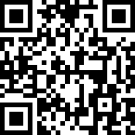
|
| 4:00pm | TRANSLATIONAL SCIENCE SHORT TALKS
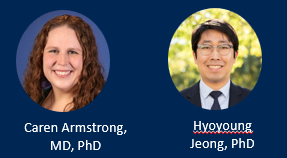
|
| 5:00pm | DINNER |
| 5:45pm | AWARDS CEREMONY |
| 6:00pm | CLOSING REMARKS |
Bios
Kim Elaine Barrett, Ph.D., is the Vice Dean for Research and Distinguished Professor of Physiology and Membrane Biology at the UC Davis School of Medicine. Barrett is advancing an innovative vision for the future of research at the School of Medicine that emphasizes collaboration to transform health. She is responsible for implementing key initiatives and fostering partnerships across UC Davis Health and with other schools, centers, and colleagues throughout UC Davis. Barrett also leads the medical school’s collaborative efforts to develop UC Davis’ Aggie Square research program. Barrett joined UC Davis Health in 2021 with more than 30 years of notable scientific research and institutional leadership experience. Immediately prior to UC Davis, Barrett was a distinguished professor of medicine at UC San Diego and director of the division of graduate education at the National Science Foundation.
Erkin Şeker, Ph.D. is a professor in the Department of Electrical and Computer Engineering and a co-director for the Center for Neuroengineering and Medicine. He has served as the Graduate Program Chair of Electrical and Computer Engineering Graduate Program between 2019-2021. During his training, Dr. Seker developed techniques to control mechanical and morphological properties of nanoporous gold, investigated material-biomolecule interactions and developed microfluidic flow control schemes. While at the Center for Engineering in Medicine at Harvard Medical School, he developed multiple electrode arrays for neural electrophysiology applications and spearheaded the development of microsystems for monitoring transcriptional and secretory dynamics at a cellular-level in the context of metabolic dysregulation. He is the recipient of many awards, including a Graduate Studies Distinguished Graduate and Postdoctoral Mentorship Award, an NSF CAREER Award, and an NIH NIBIB Trailblazer Award.
Adolfo G. Ramirez-Aristizabal, Ph.D. is a Principal R&D Researcher in Accenture Labs working at the intersection of GenAI and Bio-sensing technology application. He received his PhD in Cognitive & Information Sciences from the University of California Merced in 2022. Since then his work has spanned from projects that look to improve LLM reasoning capabilities to using Neurotech to understand and enable new user experiences. His current work is focusing on how novel AI can help scale proof-of-concepts in Neuroscience applications towards applied solutions.
JoJo Platt, Platt & Associates, Inc. is a recognized leader in the neurotechnology and medtech ecosystems, known for her ability to bridge the gap between research, commercialization, and investment. With years of experience facilitating collaborations between scientists, engineers, and investors, she has played a pivotal role in advancing innovative technologies from concept to market. Her expertise spans neuromodulation, bioelectronic medicine, and early-stage startup strategy, making her an invaluable resource for companies seeking guidance in funding, partnerships, and market positioning. JoJo has worked alongside some of the foremost pioneers in neurotech, advocating for scientific rigor, industry growth, and patient-centric innovation.
Lee Miller, Ph.D. is a professor in the Department of Neurobiology, Physiology, & Behavior and the Department of Otolaryngology / Head and Neck Surgery. He serves as Technical Director of the UC Davis Center for Mind & Brain, where his lab investigates the neural bases of communication. His neuroengineering research uses techniques such as EEG, functional MRI, and machine learning to translate fundamental scientific results into real-world solutions for people with hearing loss, speech disorders, and motor impairments. Dr. Miller is also a member of the Center for Neuroengineering and Medicine’s Steering Committee.
Mike Lemcke is Associate Director of UC Davis Venture Catalyst, which provides a comprehensive suite of resources, services and connections to support innovators to successfully form and grow new ventures. Mike oversees the life sciences and healthcare portfolio, which has supported nearly 300 startups raising over $3B in fundraising over the past decade. In his role, Mike serves as a point person with business and technical expertise, engaging directly with innovators and entrepreneurs to facilitate a pathway from research to commercial and societal impact.
Alan Mardinly, Ph.D. is Director of the Biology Division at Science Corp., and is a cofounder of the Company. His focus is on optogenetic therapies for vision restoration and biohybrid brain implants. Alan has more than 15 years of experience in neuroscience research, working across biology and neuroscience from stem cells to brain implants. He received his BA in Biology from the University of Chicago in 2006 and his PhD in neurobiology from Harvard University in 2013, where he studied how experience-induced transcriptional programs control synaptic plasticity in inhibitory neurons. Alan then went to UC Berkeley where he developed holographic optogenetic approaches to stimulate the brain with spatial and temporal precision. In 2019 he joined the leadership team at Neuralink before eventually departing in 2021 when he left to co-found Science.
Eric Trautmann, Ph.D. is a research scientist at Meta Reality Labs working on noninvasive electromyographic interfaces for augmented reality and virtual reality. He also serves as an adjunct professor in the department of neurological surgery at UC Davis, where he works with the UC Davis Neuroprosthetics Lab to develop tools and techniques that enable brain-wide recording with single-cell resolution for clinical use. In addition, his scientific work focuses on using these tools to investigate how numerous brain regions coordinate to perform neural computations underlying complex cognition and motor control. Collectively, this work aims to facilitate the development of brain-computer interfaces for the diagnosis and treatment of a variety of neurological disorders and diseases.
Karen Moxon, Ph.D. is a professor in the Department of Biomedical Engineering and Founding Co-Director Emerita of the Center for Neuroengineering and Medicine at UC Davis. Dr. Moxon has conducted groundbreaking research in neuroengineering, developing computational approaches to study the encoding of sensory and motor information. An important focus of her work is the impact of neural injury on the representation of information in the brain. Early in her career, she contributed to the first demonstration of a closed-loop, real-time brain-machine interface system in a rat model that was quickly translated to non-human primates and, more recently, to humans with neurological disorders. This work has spurred an entirely new discipline within neuroengineering that has had a global impact. Dr. Moxon maintains an active research program, combining signal processing and the development of neural interface devices with computational approaches to study how changes in neural encoding contribute to recovery of function after spinal cord injury.
Hyoyoung Jeong, Ph.D. is an assistant professor in the Department of Electrical and Computer Engineering. His research group develops clinical-grade autonomous wireless electronics for personalized health monitoring, diagnostics, and therapeutics. Combining concepts from biomedical instrumentation, mechanics, advanced wireless technologies, and machine learning for clinical-grade, high-throughput, and high SNR devices, Dr. Jeong and his lab develop and study a new class of skin-conformable wearables, unconventional freeform manufacturing techniques, and heterogenous medical platform integration schemes.
Caren Armstrong, M.D., Ph.D. is a pediatric neurologist, epileptologist, and physician scientist whose practice is focused on treating and understanding epilepsy, with a particular interest in how surgical interventions can be used to help treat children with seizures. She has had additional training in epilepsy surgical management, neuromodulation, and neurogenetics in the context of epilepsy. Dr. Armstrong is interested in the underlying mechanisms that govern the development of epilepsy in children. This includes a focus on inhibitory interneuronal microcircuits, EEG analysis, the use of intracranial stimulation to actively probe the network in patients undergoing intracranial EEG, the use of neuromodulation, and mechanisms of genetic epilepsies. To do this, she uses analysis of EEG recordings from patients as well as recording directly from resected human tissue and animal models of genetic causes of epilepsy.
Comments or questions? Contact us here!
Parking Information
Please allow at least 15 minutes for parking. Due to construction close to the UC Davis International Center, we recommend these parking lots:
- Quad Parking Structure, Campus Map: http://campusmap.ucdavis.edu/?l=27 (Google Maps: https://maps.app.goo.gl/NzEjjuhBveiAt76L6), 10-min walk
- Visitor Parking VP 25, Campus Map: http://campusmap.ucdavis.edu/?l=39 (Google Maps: https://maps.app.goo.gl/aZYnLvTJrVAwWXWb6), 11-min walk
- Visitor Parking VP 35, Campus Map: http://campusmap.ucdavis.edu/?l=41 (Google Maps: https://maps.app.goo.gl/sEBRstAcJMEx3aNr6), 15-min walk
Use the AMP Park App to pay for parking from your phone.
UC Davis International Center address: 463 California Ave, Davis, CA 95616: http://campusmap.ucdavis.edu/?b=259
Internet access for visitors and guests: create a UCD-Guest account
The campus offers a UCD-Guest wireless network intended for visitors. To create a guest WiFi account, simply select ucd-guest as your wireless network and follow the instructions when you open your browser.
Symposium Planning Committee
- Xiaomo Chen, PhD, Neurobiology, Physiology, and Behavior
- Gabriela Lee, MBA, MS, Center for Neuroengineering and Medicine
- Jack Lin, MD, Neurology
- Jon Schofield, PhD, Mechanical and Aerospace Engineering
- Erkin Seker, PhD, Electrical and Computer Engineering
- Yi Xue, PhD, Biomedical Engineering
